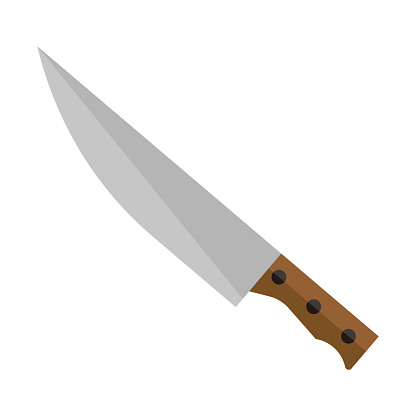Keeping your kitchen knives sharp is important for efficient and safe food preparation.

Here are some tips to help you maintain sharp knives:
Use a sharpening stone or honing steel: Sharpening stones and honing steels are two common tools used to sharpen knives. Sharpening stones remove metal from the blade to create a new edge while honing steels realign the existing edge. Both tools require some practice, so it’s recommended to watch tutorials online or consult with a professional. All this said, I do recommend a three stage sharping grinding wheel made by Chef Choice. Or find a professional near by that will sharpen your knives usually a lot cheaper that buying a $175 dollar grinder. Afterwhich you can keep them sharp with a honing steel.
Sharpen regularly: Depending on how often you use your knives, they may need to be sharpened as often as once a month or as little as once or twice a year. You can test the sharpness of your knives by trying to slice through a piece of paper. If the blade slides through with little resistance, the knife is sharp.
Store knives properly: Never store your knives loose in a drawer where they can bang against each other and become dull. Instead, use a knife block, magnetic strip, or blade guard to protect them.
Hand wash knives: Avoid putting knives in the dishwasher, which can cause them to chip or become dull. Instead, hand wash them with mild soap and warm water, and dry them immediately.
Avoid cutting on hard surfaces: Using your knives to cut on hard surfaces like glass or marble can dull the blade. Instead, use a cutting board made of wood, bamboo, or plastic.
Safe Practices:
FIRST LET ME DISPELL A MYTH: A DULL KNIFE IS A DANGEROUS KNIFE. TOTAL BUNK!
I have never cut myself with a dull knife. Never! But I have cut myself numerous times with a sharp knife, sometimes long before I even knew I cut myself. A sharp knife is dangerous, and you should have that mindset before you use it. Okay that is out of the way!
Never place a sharp knife in a sink full of dishes to be washed. Wash each knife individually very carefully and deliberately. Wash from the backbone towards the sharp edge.
Pay close attention to the hand not handling the knife.
Practice safe knife skills by concentrating on each cut. And keeping your fingers curled on the hand holding the object to be cut. Chefs call this the Claw method.
Keep a First Aid Kit in the kitchen. You should have to be running to the bathroom looking for bandaids. Why not have them handy. And really is the bathroom the cleanest most sterile place for a bandaid you are fixing to place on an open wound.
Already mentioned above but it is an important safety tip as well. Don’t place your sharp knives in a drawer. It’s too easy to cut yourself by looking for a sharp knife. I promise you that sharp knife will find you eventually. Use a knife block or magnetic strip for storing your knifes.
I’m sure I have forgotten something, so please share with the rest of us if you have a tip.
Oh one more! Consider taking a Knife Skills Course at a cooking school. Sir La Table comes to mind.
By following these tips, you can help ensure that your kitchen knives stay sharp and effective for all your food preparation needs.
